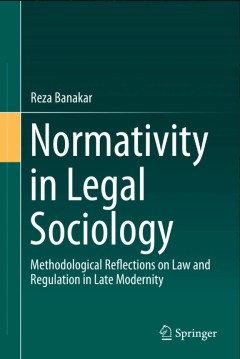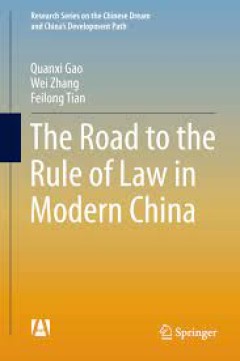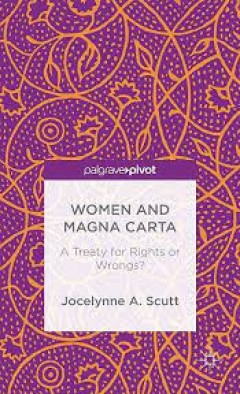Filter by

Past Law, Present Histories
This collection brings methods and questions from humanities, law and social sciences disciplines to examine different instances of lawmaking. Contributors explore the problematic of past law in present historical analysis across indigenous Australia and New Zealand, from post-Franco Spain to current international law and maritime regulation, from settler colonial humanitarian debates to effort…
- Edition
- -
- ISBN/ISSN
- 9781922144027
- Collation
- -
- Series Title
- Australia and New Zealand School of Government (ANZSOG)
- Call Number
- 340 KIR p

Coleridge's Laws : A Study of Coleridge in Malta
Samuel Taylor Coleridge is best known as a great poet and literary theorist, but for one, quite short, period of his life he held real political power—acting as Public Secretary to the British Civil Commissioner in Malta in 1805. This was a formative experience for Coleridge which he later identified as being one of the most instructive in his entire life. In this book, Barry Hough and Howard…
- Edition
- -
- ISBN/ISSN
- 9781906924140
- Collation
- -
- Series Title
- -
- Call Number
- 340 HOU c

A Formula Book of English Official Historical Documents
This 1909 work forms a second supplement to Hall's Studies in English Official Historical Documents. It gives examples of a wide range of English ministerial and judicial documents from the ninth to the seventeenth centuries. These are arranged according to type and purpose, the majority in Latin. The intention is to assist the user of such archival materials, by familiarising them with the for…
- Edition
- Hubert Hall
- ISBN/ISSN
- 9780511696923
- Collation
- -
- Series Title
- Cambridge Library Collection - Medieval History
- Call Number
- -

A Digest of Hindu Law, on Contracts and Successions
An honorary professor of Sanskrit and Hindu law at Fort William College in Calcutta, and a key figure in the foundation of the Royal Asiatic Society, Henry Thomas Colebrooke (1765–1837) became Britain's foremost orientalist during the early nineteenth century. Taking up the reins of Sanskrit scholarship following the death of Sir William Jones (1746–94), Colebrooke made several substantial …
- Edition
- -
- ISBN/ISSN
- 9781139519823
- Collation
- -
- Series Title
- Cambridge Library Collection - Perspectives from the Royal Asiatic Society
- Call Number
- -

The Acquisition of Africa (1870-1914) : The Nature of International Law
Over recent decades, the responsibility for the past actions of the European colonial powers in relation to their former colonies has been subject to a lively debate. In this book, the question of the responsibility under international law of former colonial States is addressed. Such a legal responsibility would presuppose the violation of the international law that was applicable at the time o…
- Edition
- -
- ISBN/ISSN
- 9789004321199
- Collation
- -
- Series Title
- -
- Call Number
- 340 LIN a

Normativity in Legal Sociology:Methodological Reflections on Law and Regulati…
The field of socio-legal research has encountered three fundamental challenges over the last three decades – it has been criticized for paying insufficient attention to legal doctrine, for failing to develop a sound theoretical foundation and for not keeping pace with the effects of the increasing globalization and internationalization of law, state and society. This book examines these three…
- Edition
- 1
- ISBN/ISSN
- 978-3-319-09649-0
- Collation
- X, 292
- Series Title
- -
- Call Number
- -

The Road to the Rule of Law in Modern China
This book is a grand review of the centurial development of rule of law in China. It covers the most important issues in this area and presents “political constitution,” a new interpretative framework that allows the Chinese experience of rule of law to be more fully and correctly expressed. It is especially useful to scholars involved in the study of modern China. The main chapters of this…
- Edition
- -
- ISBN/ISSN
- 978-3-662-45637-8
- Collation
- -
- Series Title
- -
- Call Number
- -

eCommerce and the Effects of Technology on Taxation Could VAT be the eTax So…
This book focuses on the impact of technology on taxation and deals with the broad effect of technology on diverse taxation systems. It addresses the highly relevant eTax issue and argues that while VAT may not be the ultimate solution with regard to taxing electronic commerce, it can be demonstrated to be the most effective solution to date. The book analyzes the application and the effective…
- Edition
- -
- ISBN/ISSN
- 978-3-319-15449-7
- Collation
- 1
- Series Title
- -
- Call Number
- -

Women and The Magna Carta A Treaty for Control or Freedom
On the eight-hundredth anniversary of the Magna Carta, Women and the Magna Carta investigates what the charter meant for women's rights and freedoms from an historical and legal perspective.
- Edition
- -
- ISBN/ISSN
- 978-1-137-56235-7
- Collation
- -
- Series Title
- -
- Call Number
- -

Vladimir Solov’ëv's Justification of the Moral Good Moral Philosophy
This new English translation of Solov’ëv’s principal ethical treatise, written in his later years, presents Solov’ëv’s mature views on a host of topics ranging from a critique of individualistic ethical systems to the death penalty, the meaning of war, animal rights, and environmentalism. Written for the educated public rather than for a narrow circle of specialists, Solov’ëv’s w…
- Edition
- -
- ISBN/ISSN
- 978-3-319-12775-0
- Collation
- LXX, 435
- Series Title
- -
- Call Number
- -
 Computer Science, Information & General Works
Computer Science, Information & General Works  Philosophy & Psychology
Philosophy & Psychology  Religion
Religion  Social Sciences
Social Sciences  Language
Language  Pure Science
Pure Science  Applied Sciences
Applied Sciences  Art & Recreation
Art & Recreation  Literature
Literature  History & Geography
History & Geography